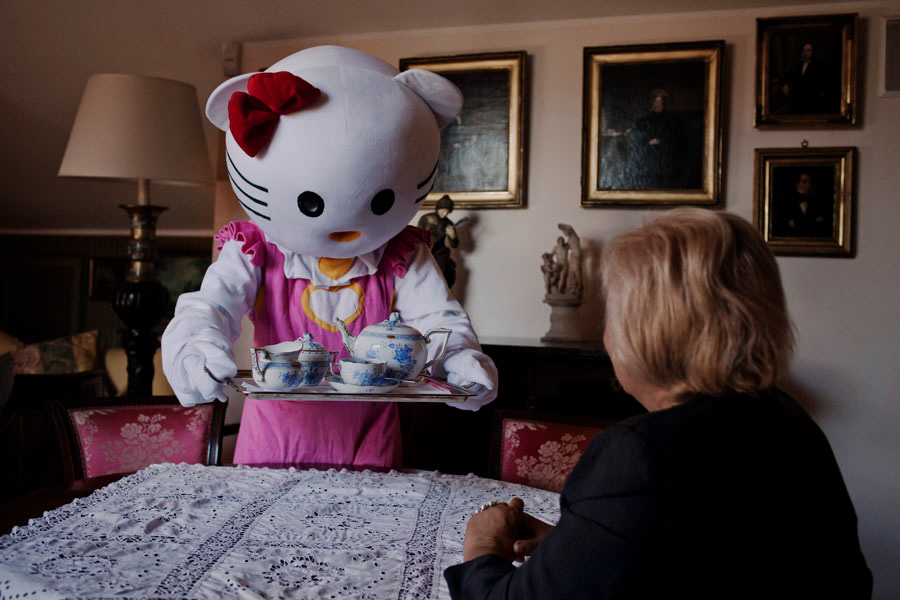I'm Winnie the Poe
Populist rhetoric which feeds on general discontent and fear, identifies enemies and cultivates the seeds of intolerance and racism : out of the closet come old nationalist ideals which exploit a concept looming larger and larger in political discourse and bar conversations; that of identity. As a historical and cultural building block, identity is, as we are taught by anthropologists, multiple, open and contextual. Each one of us can have anything from several to an infinite number : ‘one, none or a hundred thousand’, to quote Pirandello. But identity is above all a relational issue : the definition of Us always entails the negation of Them. When identities are in the hands of political ambitions, they become rigid in the form of regionalism, or of religious, political or national fanaticism.Through a tongue-in-cheek manipulation of identity, ‘I am Winnie the Pooh’ aims to provoke reflection on the stigmatisation of Them by portraying those very fears and related contradictions. The project is set in Rome which is a breeding ground for hundreds of tiny identity-obsessed groups who seize the opportunity to refer to a certain Romaness or the Roman Empire ; the city is a theatre for a wave of overt intolerance and violence against a segment of the population who represent a feared and rejected otherness. Marginal figures, undeclared workers, illegal immigrants etc. Invisible people or black sheep; we stick a label on these complex and varied identities that simplifies and denigrates Them. I have put superheroes, icons, celebrities known throughout the world into these marginal shoes. To serve as a reminder that what you see is never what you get, that people are always more complex, that each identity is only partial and that we are all one, none and a hundred thousand.











